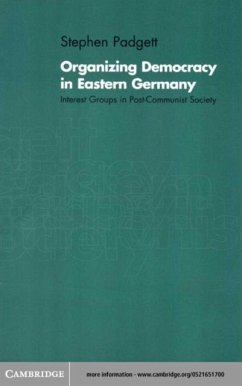The emergence of interest group politics is one of the decisive factors in democratic transformation in post-communist society. Stephen Padgett argues that evidence from eastern Germany suggests that market transition produces rather open and fluid societies, in which group interests and identities are tenuous. Lacking a supportive social infrastructure, interest groups operate on 'entrepreneurial' lines, a form of associational activity which falls far short of pluralist ideals. With its accelerated transition to a market economy, eastern Germany provides a 'fast-forward' study of an 'advanced post-communist society' which enables us to anticipate the social structures and issues shaping interest-group politics in the newly-democratizing states of east-central Europe. Examining a number of different interest groups, and comparing a number of countries across east-central Europe, this book may also offer a vision of the future of interest-group politics in the West.
Dieser Download kann aus rechtlichen Gründen nur mit Rechnungsadresse in A, B, BG, CY, CZ, D, DK, EW, E, FIN, F, GR, HR, H, IRL, I, LT, L, LR, M, NL, PL, P, R, S, SLO, SK ausgeliefert werden.









